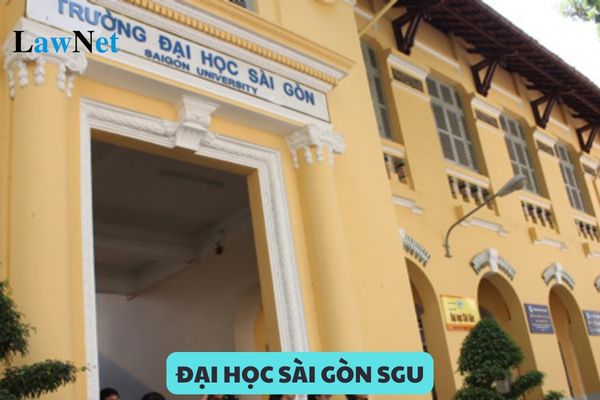Vietnam: How many campuses does Sai Gon University (SGU) have?
Vietnam: How many campuses does Sai Gon University (SGU) have?
Saigon University was established by upgrading the Ho Chi Minh City College of Education according to Decision 478/2007/QD-TTg dated April 25, 2007.
Based on the 2024 Admission Scheme download of Saigon University (SGU), the university has a total of 6 campuses including:
The main campus of Saigon University (SGU) is located at 273 An Duong Vuong, Ward 3, District 5.
Saigon University (SGU) has 2 training campuses:
- Campus 1: No. 105 Ba Huyen Thanh Quan, Vo Thi Sau Ward, District 3
- Campus 2: No. 04 Ton Duc Thang, Ben Nghe Ward, District 1.
Additionally, Saigon University (SGU) has 3 other campuses:
- Dormitory: No. 99 An Duong Vuong, Ward 16, District 8
- Sai Gon Practice High School: No. 220 Tran Binh Trong, Ward 4, District 5
- Sai Gon University Practice Primary School: No. 18-20 Ngo Thoi Nhiem, Vo Thi Sau Ward, District 3.

Vietnam: How many campuses does Sai Gon University (SGU) have? (Internet image)
How many methods of organizing undergraduate education are there?
According to Article 3 of the undergraduate training regulation issued with Circular 08/2021/TT-BGDDT, there are 2 methods of organizing undergraduate education, including annual system training and credit-based training, as follows:
- Annual system training: A method where training is organized with relatively fixed classes for all compulsory modules of the training program throughout the entire course. This allows students in the same class to follow a standardized study plan and a common timetable except for elective or retake modules;
Students assessed as having normal study progress will continue to study the following year according to the standardized study plan and register to retake any unfinished modules as per the training program's regulations;
Students assessed as not having normal study progress will have to study with the following batch of students to retake any unfinished modules as per the training program's regulations.
- Credit-based training: A method where training is organized by individual course units, allowing students to accumulate credits for each course module and follow a personalized study plan, aligned with the teaching schedule of the educational institution;
Students who fail a compulsory module must retake that module or another equivalent module as per the training program's regulations, or take a substitute module if the original module is no longer offered;
Students who fail an elective module must either retake that module or select another elective as per the training program's regulations.
How many semesters are there in an school year in Vietnam?
Article 6 of the undergraduate training regulation issued with Circular 08/2021/TT-BGDDT provides as follows:
Teaching and study plan
- The teaching and study plan details the implementation of training programs by academic year, semester, suitable to the training form and method.
- The academic year plan shows the main milestones of training activities throughout the academic year for all formats, training programs, and is promptly announced to related parties before the beginning of the academic year. One academic year has 2 or 3 main semesters with a minimum of 30 weeks of classes. In addition to the main semesters, the educational institution may organize supplementary semesters.
- The semester plan includes the course opening schedule, teaching and learning format (face-to-face or online), class schedule, and examination schedule for courses organized in the semester for courses, training programs, and methods. The semester plan must be devised and promptly announced with all necessary information, ensuring convenience for students to plan and register for studies.
- The timetable shows the time, location, and teaching and learning activities of each class for courses, forms, and training programs. The timetable for regular course units is evenly distributed across the weeks of the semester. If necessary, centralized study schedules are arranged such that the teaching hours for any course unit does not exceed 15 hours/week and 4 hours/day.
- The educational institution's regulations specify the distribution of semesters, time, location, and arrangement of class hours as per this regulation.
Thus, an academic year for university students consists of 2 or 3 main semesters with a minimum total of 30 weeks of classes. In addition to the main semesters, the educational institution may organize supplementary semesters.

